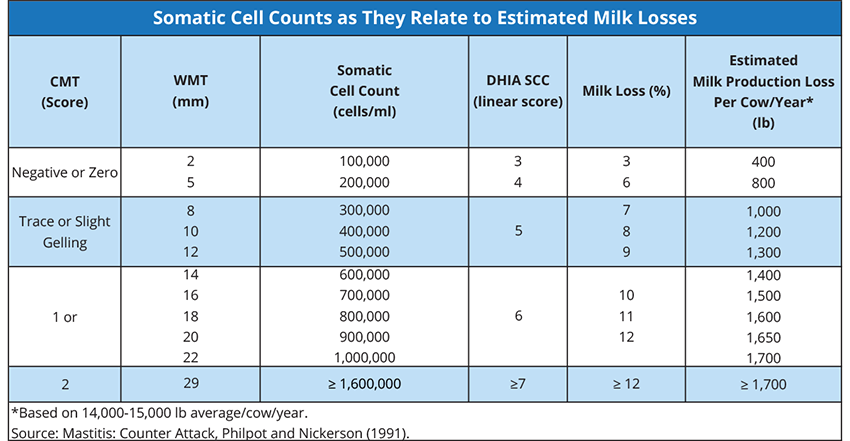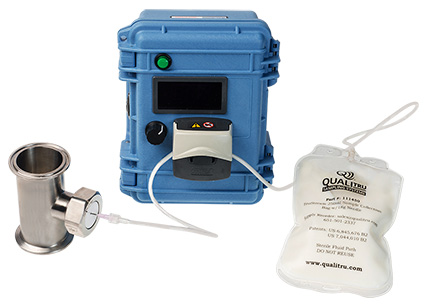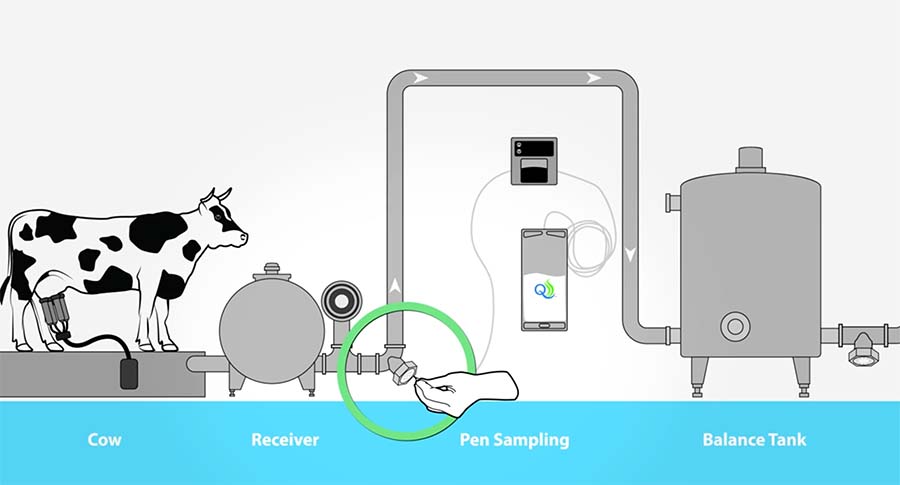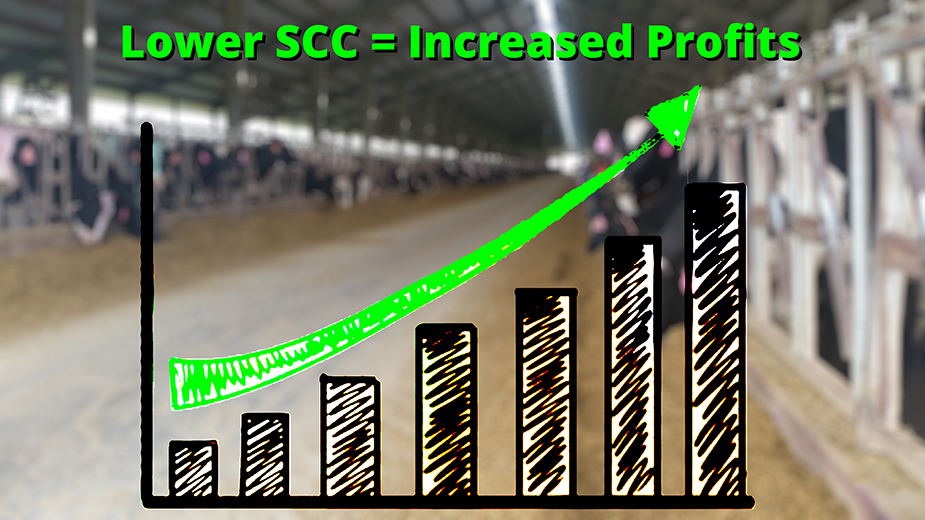Impact of Somatic Cell Counts on Dairy Farmers
Somatic Cell Counts (SCC) is not just a scientific term of academic interest, it has real-world implications for every dairy farmer. Simply put, lowering SCC leads to increased profits.
That’s not just us saying so, we recently ran across this article, Somatic Cell Count Impacts Everything by Mike Lormore, DVM, MS, MBA, Director Cattle Technical Services, Zoetis, about the wide-ranging impacts of Somatic Cell Counts (SCC) in a dairy operation. Zoetis and Compeer Financial analyzed 11 years of herd data using 489 year-end financial and production record summaries from Iowa, Michigan, Minnesota, Ohio, South Dakota, and Wisconsin.
According to the study, elevated SCC was associated with lower milk production, reduced pregnancy rates, and more significant death losses.
What is Somatic Cell Count (SCC) in milk?
A somatic cell count (SCC) is a cell count of somatic cells in a fluid specimen, usually milk. In dairying, the SCC is an indicator of milk quality—specifically, its low likeliness to contain harmful bacteria and thus its high food safety. White blood cells (leukocytes) constitute the majority of somatic cells in question. The number of somatic cells increases in response to pathogenic bacteria like Staphylococcus aureus, a cause of mastitis. The SCC is quantified as cells per milliliter. (From Wikipedia).
Just how much can lower SCC affect profitability?
The Zoetis and Compeer Financial study found that the difference between the best-third and worst one-third of herds in their study was a bulk tank SCC of 152,000 cells/mL (134,000 vs. 284,000). Furthermore, this difference in SCC between the two herds was associated with an astonishing 11-pound difference in milk production per cow per day—adding up to $159 in net farm income per cow!
If you think this doesn’t apply to you if your SCC is more around the bulk tank SCC average of 200,000 cells/mL, think again!
The study indicates that 200,000 SCC is not low enough as an industry standard. In the study, 5.5 pounds of milk per cow per day were lost with every 100,000-cell increase in bulk tank SCC. This means the long-term impact of cell counts at the accepted standard of 200,000 can significantly affect profitability at the end of the year.
According to the research study, Reducing Somatic Cell Count in Dairy Cattle published by Michael Looper, Professor and Department Head – Animal Science at the University of Arkansas, “The primary reason for dairy producers to reduce SCC is because SCC relates to milk losses due to mastitis.” (See table below).

California Mastitis Test – (CMT), Wisconsin Mastitis Test – (WMT), and Dairy Herd Improvement Association – (DHIA).
Managing SCC with string sampling
 Implementing routine string sampling as part of your process management strategy for monitoring SCC will provide visibility to efforts to push SCC as low as possible and ensure you have protocols in place for early detection of mastitis.
Implementing routine string sampling as part of your process management strategy for monitoring SCC will provide visibility to efforts to push SCC as low as possible and ensure you have protocols in place for early detection of mastitis.
International studies prove QualiTru’s aseptic and representative sampling system to be an effective surveillance tool for detecting elevated somatic cell counts within groups of cows through string sampling when managing mastitis.
“The QualiTru inline sampling system has proven to be a useful epidemiological surveillance tool for mastitis within different milking groups.”
Read the study: Mastitis Detection for Representative Sampling.
We’ve published a useful guide called “Guidelines for Pen or String Sampling with a Peristaltic Pump.”
Watch our training video on Pen or String Sampling with a Peristaltic Pump for more information on how to incorporate the QualiTru sampling systems for string sampling into your process management strategy for monitoring SCC.

Technology is essential to helping dairy farmers maintain milk quality consistency and cost savings. Improve your long-term profitability by implementing string sampling protocols to push SCC levels as low as possible.
For more studies proving the effectiveness of the QualiTru sampling systems, visit our Case Studies page.
- Have questions about string sampling? Ask Our Experts!
- Learn more about QualiTru’s representative sampling solutions for dairy farms
- View our catalog of sampling and process monitoring products




